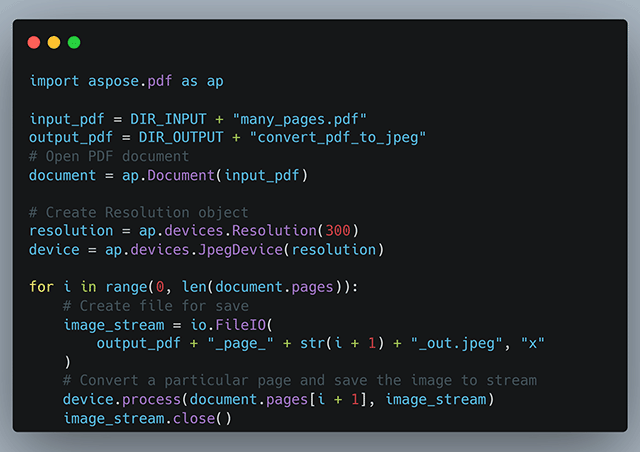A comprehensive set of tools for PDF operations
The Python library that has many excellent features and makes PDF manipulation the easiest ever.
Conversion
The library supports conversion of over 20 formats, including:
- PDF to DOCX
- PDF to XLSX
- PDF to PPTX
- PDF to Images
- PDF to HTML
- HTML to PDF
- PDF/A to PDF
- PDF to PDF/A (X)
We support OFD (Open Fixed-layout Document) format.
Parsing
The library allows to extract:

Why Aspose.PDF?
Aspose is a great choice for PDF processing:
- High Performance: Aspose.PDF is known for its high-performance capabilities, efficiently handling large PDF documents
- Reliability: Backed by a team of experienced developers, Aspose ensures a reliable and robust API
- Comprehensive Documentation: The API is well-documented, making it easy to get startedand effectively utilize its extensive functionality
- Versatility: Aspose supports a wide range of document processing tasks, including creating, editing, converting, and securing PDF documents
- No Third-Party Dependencies: Aspose libraries are self-sufficient and do not depend on third-party software like Microsoft Word or OpenOffice
- Lots of happy Customers and real Success Stories with Aspose.PDF






















